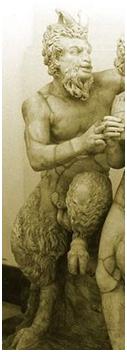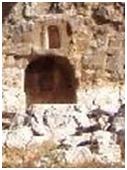The following was published in the May, 2011 Central Florida Episcopalian
The recent Jesus Seminar course advertised in the Central Florida Episcopalian underscores the need for the clergy and laity within the Diocese of Central Florida to be wise and discerning in the matters of our common Christian faith and life. From the ad in the April 2011 CFE, headlined, The Quest for the Historical Jesus: “The Gospels portray Jesus as the Messiah and divine savior. Within the Gospels, however, we can glimpse another Jesus, a Jewish teacher and healer with a radical vision of the kingdom of God. The search for the historical Jesus examines the Gospels in order to discover who Jesus was before he became the object of Christian belief.”
The basic premise of the Jesus Seminar scholars is that the “Jesus” that the Church worships and follows in life practice is a different Jesus than the actual flesh and blood person who walked the Earth 2000 years ago. The basic charge from the Seminar is that the later followers of Jesus mythologized the figure of Jesus in order to create a religious theological system called Christianity and an institution called the Church.
On face value, the basic premise of the Jesus Seminar’s teachings sounds quite plausible especially to our modern minds which have been thoroughly schooled in materialistic secularism. The modern mind has no categories for the miraculous, the mysterious or the supernatural.
The Seminar’s teachings often find a sympathetic audience for another reason. There is a general skepticism in the culture with institutions in general but especially the institutions of the Christian Church. This is not entirely without good reason. Turn on the news and we are shown a pastor in Gainesville burning Qurans; priests and bishops being sued for a pedophile scandal; and prominent Christian leaders caught in extra-marital affairs. A recent research study titled UnChristian concludes that “An overwhelming percentage of non-Christians sampled said they perceived Christians as judgmental, hypocritical, too political, and antihomosexual, among other things.”
The media rarely reports on Christians feeding the homeless, teaching the next generation in Christian schools and ministering to the sick and dying. If it bleeds it leads. The institutional Church has many self-inflicted wounds which make the headlines. So the claims of the Jesus Seminar that the institutional Church has gotten it wrong for two millennia about the “real” Jesus resonates in a secular society already skeptical of the Church.
To be honest, institutional churches have at times been wrong in teachings and doctrines. The Protestant Reformation is a good example of a period in Church history where scholars and theologians challenged the institutional Church to reform its teachings to bring them back into conformity with the teachings of Jesus and the Apostles. Martin Luther, John Calvin, Thomas Cranmer and others were willing to be branded as heretics, even to put their lives on the line in order to challenge what they perceived to be corruptions in teaching and practice by the institutional Church.
Episcopalians are the heirs of that rich protestant heritage of questioning our catholic institution. As Protestants, we are always seeking to reform and renew our beliefs. In our prayers for the Church, the Book of Common Prayer provides the petition: Gracious Father, we pray for thy Holy Catholic Church. Fill it with all truth, in all truth with all peace. Where it is corrupt, purify it; where it is in error, direct it; where in anything it is amiss, reform it. Where it is right, strengthen it; where it is in want, provide for it; where it is divided, reunite it; for the sake of Jesus Christ thy Son our Savior. Amen.
Following the teachings of the Jesus Seminar, bishops and clergy like the Rt. Rev. Jack Spong have fashioned themselves as the Church’s newest protestant reformers. They are calling into question the long standing creedal and doctrinal teachings of the Church on the bodily resurrection of Jesus, the divine nature of Jesus, the efficacy of prayer, the reality of heaven and hell, the promise of a second coming of Jesus, the necessity of faith in Jesus Christ for salvation, the Cross of Jesus as an atonement offering for the sins of the world, and so on.
One of the workshops offered at the seminar event last month was titled What Jesus Wasn’t and the Kingdom Isn’t. The website promoting the workshop asserted: “The followers of Jesus exchanged the vision for the visionary. They elevated Jesus to godhood, interpreted his death as a blood sacrifice, and organized Churches. Christianity eventually constructed an all-encompassing official theology with the divine Jesus at its center. This workshop tells how this happened, assesses its costs, and explores modern options for thinking about God that take the historical Jesus seriously.”
So, has the Church been wrong about Jesus all these years? Was the “historic” Jesus merely a man who not only lived and died as one of us, but never really walked on water, calmed the storm, fed the five thousand, died on a cross for our salvation, or bodily rose from the dead? Was all of that made up by the Church, a form of religious mythology? Is Jesus merely an inspiring historic figure, but nothing more? If the Jesus Seminar’s critique is correct, one is left wondering what is the point of continued participation in the Church? Indeed, many people have come to accept the skeptical teachings of the Seminar through the years and as a result have wandered away from life in the Church.
The Jesus Seminar is perhaps most famous for its gatherings of scholars to vote on the sayings attributed to Jesus in Gospel texts using various colored beads placed in a basket to register their individual degree of certainty or skepticism that the words authentically represent the historic Jesus. The voting system has been roundly criticized by many scholars, such as N.T Wright, author of Jesus and the Victory of God, for its use of a weighted average that favors ruling a saying of Jesus to be inauthentic. Wright muses, “I cannot understand how, if a majority … thought a saying authentic or probably authentic, the ‘weighted average’ turned out to be ‘probably inauthentic’.”
The Seminar itself which is self-selected vastly under-represents the multitude of New Testament scholars around the country that affirm the basic historic accuracy of the Gospel records. Thus the results of their voting are biased toward a skeptical reading of the Gospel texts in favor of non-Canonical texts such as the “Gnostic Gospels”. Many have questioned whether the Jesus Seminar seems at times more motivated by a desire to say something controversial which might land them a media appearance on the latest made for TV Easter or Christmas documentary.
One of the most important things to know about the methodology of the Jesus Seminar is their prior assumptions. The Seminar has created many different criteria that govern whether they will determine that a saying of Jesus is authentic or inauthentic. Raymond E. Brown in An Introduction to the New Testament is critical of the methodology: “It [the Jesus Seminar] has operated to a remarkable degree on a priori principles, some of them reflecting an anti-supernatural bias. For instance the bodily resurrection had no real chance of being accepted as having taken place. The session dealing with the authenticity of Jesus’ predictions of his passion and death was dominated by the initial refusal of most of the participants to allow the possibility that Jesus could have spoken of his impending death by virtue of “super-ordinary” powers; accordingly they voted black (he did not say it) on eleven Synoptic passion predictions.”
A text such as John 14:1-14: “I am the way, and I am the truth, and I am life”, cannot be an authentic saying because it has Jesus referring to himself. Robert W. Funk, founder of the Jesus Seminar writes: “It is unthinkable…that Jesus said many of the things he is reported to have said. He certainly did not make claims for himself. To have done so would have contradicted his fundamental disdain for arrogance and hypocrisy and run counter to his rhetorical strategies. Sayings like those we find in the fourth Gospel could not have originated with Jesus.” But why could not Jesus have referred to himself? The circular logic is that Jesus would not have said such things so he certainly did not say such things—says Funk.
It is not surprising then that the “historic” Jesus whom the Jesus Seminar reconstructs closely reflects their prior assumptions. Luke Timothy Johnston, author of The Real Jesus, remarks that their conclusions were “already determined ahead of time,” which Johnston says is “not responsible, or even critical scholarship. It is a self-indulgent charade.” And Brown concludes, “The question has been raised whether once again, as with the discovery of the liberal Jesus in the last century, the quest [for the historic Jesus] is not producing the Jesus the quester wished to find.”
And just who is the Jesus Seminar’s Jesus? He is a wise peasant, a Jewish cynic, a faith healer who is committed to a social reform ministry on behalf of the poor and marginalized. But, he is a Jesus who does not see himself as God in the flesh, who does not have the aim of creating a continuing community called the Church after his death, who does not provide any theological significance to his death, or anticipate his eschatological return. This Jesus most certainly did not bodily rise from the dead.
The other founder of the Jesus Seminar, John Dominic Crossan, goes so far as to say that after Jesus body was taken down off the cross (if it even was) it was most likely thrown into the town garbage heap to be eaten by carrion and wild dogs or buried in a mass grave. For Crossan, the resurrection of Jesus is a faith experience on the part of the early Church, not a historic reality.
Brown summarizes the many “bluntly critical” writings about the Seminar: “One finds therein such devastating judgments as: methodologically misguided; no significant advance in the study of the historic Jesus; only a small ripple in NT scholarship; results representing the Jesus the researchers wanted to find; the pursuit of a specific confessional agenda; and dangerous in giving false impressions.” Such critiques come from a wide range of New Testament scholars from faculties such as Baylor, Duke, Emory, Yale, Catholic University, and Wake Forest.
The leaders of the early Church also were very critical of false prophets and teachers. The writers of the New Testament anticipated that there would come a day in which false teachers would slip into the common life of the Church and question the eye-witness testimony of the Apostles and the Commandment of the Lord Jesus. “But there were also false prophets among the people, just as there will be false teachers among you. They will secretly introduce destructive heresies, even denying the sovereign Lord who bought them—bringing swift destruction on themselves. Many will follow their depraved conduct and will bring the way of truth into disrepute. In their greed these teachers will exploit you with fabricated stories.” (2 Peter 2:1-2)
The people of God must always be prepared to discern between true and false teaching—even within our own diocese. There are plentiful reasons why someone might want to deny the historicity and accuracy of the Gospels. Some motivations are seemingly selfless (for example, a desire to be non-judgmental, and all-inclusive). However, the main reason often proves itself to be one of hardness of heart and stubborn willfulness. The challenge of Jesus is his sovereign Gospel summons to the Kingdom of God which calls all people to repentance and obedience of faith in the Messiah, the Christ. In pride, human beings do not want to submit to a higher authority, especially one that challenges them to renounce self. Jesus Christ is the King of Kings and the Lord of Lords. Jesus’ bodily resurrection from the dead in time and space vindicates him in his lordship. The resurrection provides to those who trust in Jesus name a historic guarantee of salvation from sin and death and a tangible foretaste of new life in the coming Kingdom of God.
Those who deny the faith given to us by Jesus Christ and his Apostles harm not only themselves, but of greatest concern is the harm they do to those who follow them. Be skeptical of the skeptics. Those who question the Lord need to be questioned themselves. Jesus calls us to trust and obey.




 nd demonic activity.
nd demonic activity.